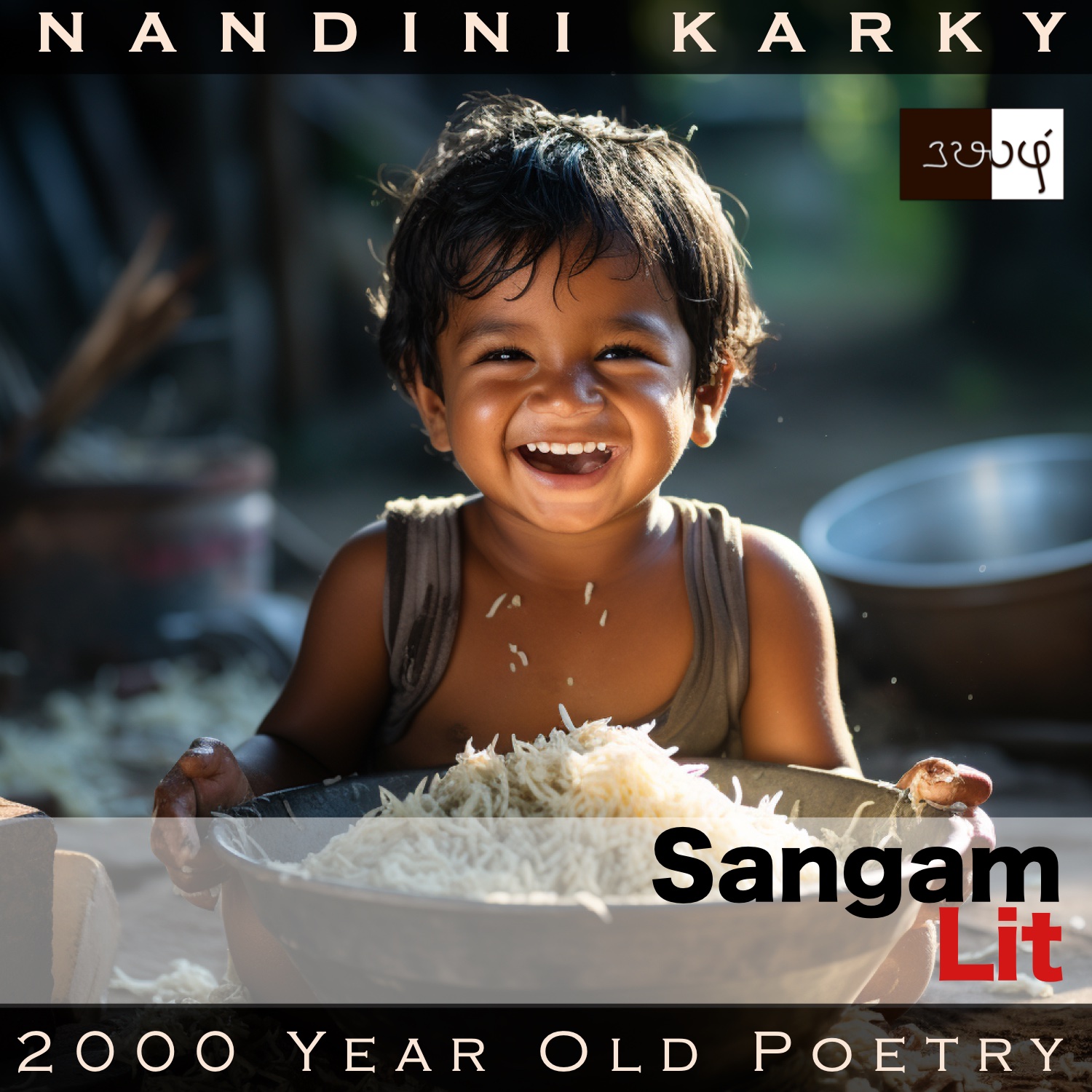Podcast: Play in new window | Download
Subscribe: Apple Podcasts | Spotify | Amazon Music | Android | iHeartRadio | TuneIn | RSS | More
In this episode, we see how children were seen in the ancient era, as depicted in Sangam Literary work, Puranaanooru 188, penned by the Pandya King Arivudai Nambi. Set in the category of ‘Pothuviyal Thinai’ or ‘Common Themes’, the verse reveals the Sangam perspective on what gives meaning to a person’s life.

படைப்புப் பல படைத்துப் பலரோடு உண்ணும்
உடைப் பெருஞ் செல்வர் ஆயினும், இடைப் படக்
குறுகுறு நடந்து, சிறு கை நீட்டி,
இட்டும், தொட்டும், கவ்வியும், துழந்தும்,
நெய்யுடை அடிசில் மெய் பட விதிர்த்தும்,
மயக்குறு மக்களை இல்லோர்க்குப்
பயக் குறை இல்லை தாம் வாழு நாளே.
A song in which the visuals sketched are guaranteed to paint a smile! The poet happens to be a Pandya King and his words can be translated as follows:
“Even if they are people with great wealth, who have accumulated a lot and have the fortune of eating with many, if they do not have delightful children, who walk with short and wobbly steps haltingly, extending their little hand, and after touching, patting, clutching, stirring, scattering that ghee-filled rice all over their little body, then the days of their wealth-filled life have no value!”
Let’s delve into the thoughts presented here. The king starts by talking about the affluent members of society, who have amassed a lot of wealth, and who sit down to eat with many people every single day. The last marker of wealth subtly highlights that in Sangam times, to have wealth meant that it was not to hoard for oneself but to inevitably share with others. After bringing to the foreground, who he’s talking about, the poet-king provides an account of toddlers, who have just learned walking, as they take step after step haltingly, extending their hands, and then finding a bowl of ghee-coated rice, playing in all possible ways – digging it, putting their hands in and churning it- and in the process, showering themselves with bits of rice. If such messy scenes of wasting by these young ones do not find a place in the lives of those wealthy, then their life has no meaning, concludes this king.
A conclusion that pronounces a rather severe judgement on those, who cannot or do not want to have children. Let’s set aside such notions that do not hold good in this time and purely focus on that timeless emotion of celebrating children. Watching any little child, not only one’s own, laugh and smile, walk and play, is something that evokes not only joy, but also, hope about the future of this world. And that is the only thought in this ancient verse, which seems to me like a child’s chubby little hand extending out and asking me to hold on to it!




Share your thoughts...